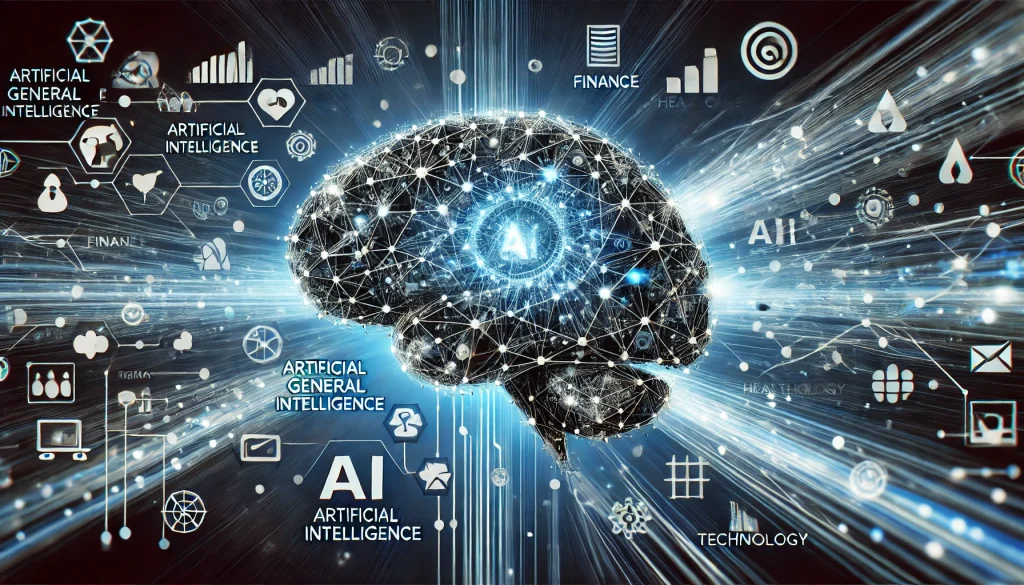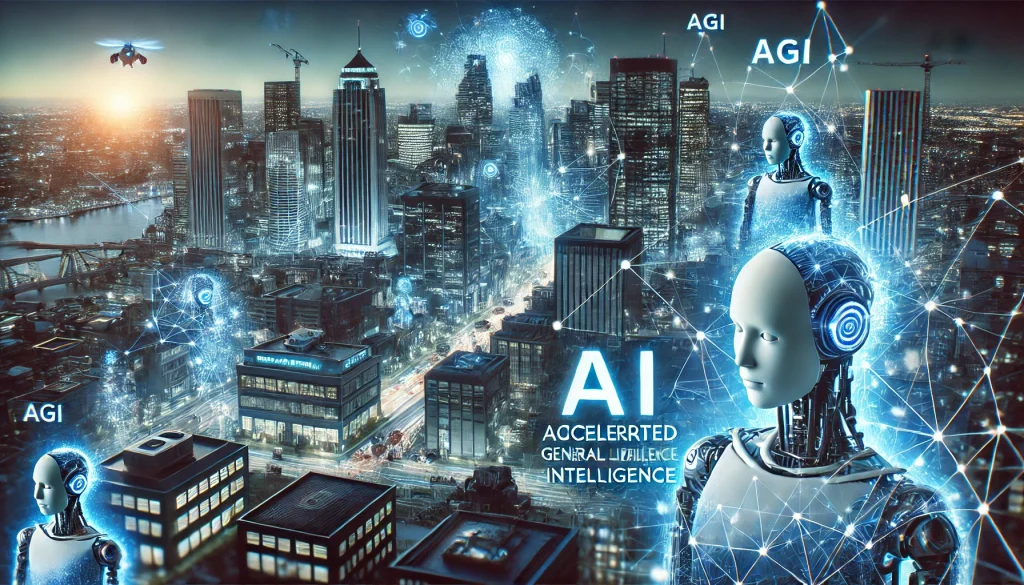
October 2024 felt like a turning point for Artificial General Intelligence—not because anyone “achieved AGI,” but because the conversation shifted from sci-fi speculation to sharper engineering questions: reasoning, planning, safety, and real deployment paths. In the broader AI category, Artificial General Intelligence became the lens through which researchers, vendors, and policymakers debated what “general” should mean, what benchmarks are credible, and how much autonomy is too much. If you follow AI for work, research, or curiosity, these developments in Artificial General Intelligence mattered because they shaped the roadmaps, budgets, and guardrails many organizations still follow today.
What Happened
In October 2024, the story of Artificial General Intelligence wasn’t one single product launch—it was a stack of signals pointing in the same direction: more agentic behavior, stronger planning research, and more emphasis on definitions and governance. One notable academic milestone came from the Artificial General Intelligence 2024 conference proceedings, including work dated October 23, 2024 on planning and explanation generation—two capabilities often cited as core to Artificial General Intelligence rather than narrow pattern matching.
At the same time, industry discussion increasingly questioned what counts as Artificial General Intelligence, with analysts and educators highlighting that AGI implies cross-domain learning and application, not just excellence in one benchmark. Gartner’s definition captures this clearly: AGI should understand, learn, and apply knowledge across many tasks and domains.
In practical terms, October’s momentum amplified focus on agent workflows, better reasoning, and alignment—making Artificial General Intelligence a strategic topic for enterprise planning, not just research labs.
When and Where

The “October 2024” developments around Artificial General Intelligence unfolded across a few key arenas. First, formal research channels—conference proceedings and papers—provided concrete technical progress on planning and autonomous explanation (two foundations often linked to generality). Second, business and strategy publications were actively reframing Artificial General Intelligence for leaders and teams trying to prepare for long-term impact, emphasizing that AGI remains theoretical while still influencing investment and risk planning.
And third, the broader AI ecosystem was being measured and contextualized by large-scale reporting, like Stanford HAI’s AI Index (2024), which tracks where AI is beating humans, where it is not, and what trends (performance, investment, policy) are accelerating. Those combined channels—research, enterprise strategy, and measurement—made October 2024 a month where Artificial General Intelligence discussions became more structured, more evidence-driven, and more operational.
Who is Involved
The ecosystem shaping Artificial General Intelligence is bigger than any single company. On the research side, conference communities focused on AGI-like systems continued to push ideas around planning, autonomy, and explanation—core ingredients for robust general behavior. On the industry definition and guidance side, analyst organizations such as Gartner influenced how enterprises talk about Artificial General Intelligence, especially around what “general” should mean across domains.
Major technology organizations also shaped expectations indirectly through capability leaps in modern AI systems—especially systems that appear more agentic and better at multi-step reasoning. However, several reputable explainers and glossaries emphasize that Artificial General Intelligence is still a hypothetical stage, not a settled engineering milestone, and that no system has conclusively demonstrated the full human-like breadth implied by the term.
Finally, public commentary—from business outlets to psychology and ethics writers—helped broaden the discussion beyond “can we build it?” to “how do we define it, govern it, and live with it?”
Why It Matters

Why did October 2024’s Artificial General Intelligence momentum matter in the AI category? Because it pushed three practical shifts.
First, it clarified the goalposts. If Artificial General Intelligence means cross-domain capability, then progress needs stronger evaluations, better definitions, and more transparency about limits—something analysts and explainers repeatedly stress. Second, it highlighted that “generality” isn’t just intelligence—it’s also reliability, planning, and the ability to explain actions. That’s why planning and explanation research (like the October 2024 AGI proceedings work) is such a big deal for Artificial General Intelligence progress.
Third, it raised the stakes for governance. More powerful, more autonomous systems increase the need for alignment, accountability, and safety controls—because the impact of Artificial General Intelligence (or even AGI-like behavior) spreads into healthcare decisions, financial workflows, education systems, and public infrastructure. This is where Artificial General Intelligence starts looking like futuristic technology—but the real-world question becomes: can we keep it beneficial as it becomes more capable?
One more real-world angle: as cities and industries connect iot devices into operational networks, the temptation to add increasingly autonomous decision systems grows—making the governance of Artificial General Intelligence-style capabilities even more critical.
(And yes—if you’re tracking AI breakthroughs, October 2024 was a month where the “breakthrough” was often how the field reframed the problem, not just new benchmarks.)
To ground the big picture: major references describe Artificial General Intelligence as the hypothetical point where systems can match or exceed human cognitive ability across tasks—an ambition that still sits beyond today’s narrow AI, even if the trajectory is accelerating.
Quotes or Statements
A consistent theme across credible definitions is that Artificial General Intelligence implies broad, cross-domain competence—not just high performance in one area. Gartner’s definition emphasizes the ability to understand, learn, and apply knowledge across a wide range of tasks and domains, which is the core bar many people implicitly reference when they talk about Artificial General Intelligence arriving.
Meanwhile, explainers from major organizations reinforce that Artificial General Intelligence remains a theoretical concept and that timelines are uncertain—an important counterweight when excitement runs ahead of evidence.
Conclusion
October 2024 was a pivotal month in the evolution of Artificial Intelligence because it sharpened the field’s priorities: planning, autonomy, explanation, and governance. Research signaled progress toward capabilities associated with Artificial General Intelligence, while analysts and major explainers reinforced what “general” should actually mean—and why safety and accountability must keep pace. If this trajectory continues, the next big chapters in Artificial Intelligence will be less about flashy demos and more about reliable agency, transparent evaluation, and scalable oversight.
FAQs
What is the difference between AGI and traditional AI?
AGI can perform any intellectual task that a human can, while traditional AI is limited to specific tasks.
How close are we to achieving AGI?
AGI is still in development, but recent advancements indicate we are closer than ever before, though timelines remain uncertain.
What are the ethical concerns surrounding AGI?
Ethical concerns include ensuring fairness, transparency, and accountability, as well as preventing harmful decision-making by AGI systems.
Resources
- IgniteTech. Path to AGI.
- IMD. The Future of Artificial General Intelligence.
- LinkedIn. The Case for Accelerating AGI Research.
- LiveScience. What is Artificial General Intelligence?.
- Psychology Today. The Accelerating Path to AGI.
